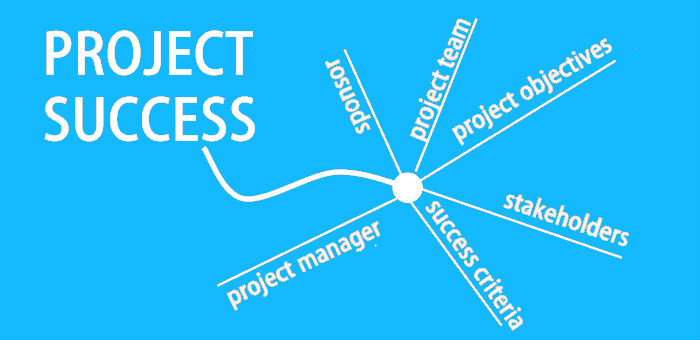
Professionals specializing in project management will assert that to an even greater degree than in the past, 2025 is a challenging year that will require specialists to acquire some combination of technical skills, leadership, and flexible thinking. The same set of abilities will be present in the forefront of project management – here are the “10 must-have skills” for ambitious and successful project managers this 2025. Hope is not lost, though wees may be about to come!
1. Adaptive Leadership
As we sit now, the technology is more advanced than it ever was meaning that project managers have to do so much more and juggle several tasks at once. To display adaptive leadership is to:
- Account for different styles – about a variety of teams and contexts.
- Keep one’s focus – when navigating the fog of uncertainty.
- Instill confidence – through inclusive leadership practices, by forging and trusting collaborations.
It is the ability to address motivational needs without the need for close supervision, along with cultural awareness, that allows one to effectively manage remote and hybrid teams.
2. Emotional Intelligence (EQ)
Nowadays, expertise is not in itself a sufficient factor for attaining success. The construct of Emotional Intelligence (EQ) involves the following constructs:
- Empathy – the ability to get into the emotions and motivations of a team member or fellow team leader.
- Communication – appropriately and effectively speaking to stakeholders and clarifying an issue.
- Conflict resolution – walking disputes as chances to learn and progress.
With the available EQ, it can decide which project team takes off and which gets grounded in the foundation of the respective project’s vision and execution plan.
3. Strategic Thinking.
The success of any project can be measured by the returns on investment generated by the organization. Strategic thinking involves:
- Ensuring that business objectives are well-defined and the projects are well-targeted to these objectives as well.
- Ability to foresee opportunities and risks.
- Deciding based on the value that will be created in the long term rather than the short term.
Having a strategic mindset ensures that whatever project you run will bring some actual value to the overall vision of the organization.
4. Digital Literacy.
AI, automation and big data are changing how project management tools and processes function. In the year 2025, being digitally literate means:
- Capable of using project management systems such as JIRA, Trello & Primavera P6 Microsoft Project.
- Interpreting AI-powered insights for data-driven decisions.
- Using new technologies such as blockchain, and iot for new solutions.
If you constantly evolve with technology, you will be a great addition to any organization.
5. Change Management Proficiency:
Within a short window of time, there is rapid change in changes and technology which means that projects often involve change management. The role of the project manager is central to continuity, and must therefore:
- Manage teams – for change by preemptively addressing their needs.
- Use the change management process which includes tools such as Prosci’s ADKAR model.
- Create a positive change culture to overcome resistance against change.
Projects are no longer simply undertakings, on the contrary, they are deliverables that drive change.
6. Stakeholder Management
Stakeholders are crucial to the success of any project. Effective management of stakeholders includes:
- Identifying key stakeholders from the outset.
- Keeping them informed and engaged throughout the project lifecycle.
- Proactively addressing their concerns and expectations.
When stakeholders feel appreciated, they are more inclined to support your project and contribute to its success.
7. Mastery of Agile and Hybrid Methodologies
Agile has evolved from a niche approach to the gold standard in modern project management. By 2025, project managers will need to:
- Navigate various Agile frameworks such as Scrum, Kanban, and SAFe.
- Integrate traditional and Agile methods in a hybrid approach for greater flexibility.
- Manage iterative deliverables while still focusing on long-term objectives.
Embracing Agile methodologies leads to quicker delivery and enhanced adaptability.
8. Expertise in Risk Management
Unforeseen challenges are a regular part of project management. Cultivating strong risk management skills involves:
- Proactively identifying potential risks before they escalate.
- Implementing contingency plans and mitigation strategies.
- Utilizing tools like risk matrices and decision trees to evaluate impact.
Being ready for the unexpected is a defining trait of an outstanding project manager.
9. Financial Acumen
Budget constraints and ROI expectations are growing tighter. Financial acumen helps project managers:
- Create realistic budgets and manage costs efficiently.
- Understand financial metrics like NPV, IRR, and payback periods.
- Communicate financial value to stakeholders effectively.
In 2025, demonstrating fiscal responsibility is critical to maintaining credibility.
10. Sustainability Awareness
Sustainability isn’t just a buzzword—it’s a priority for modern organizations. Project managers can:
- Integrate green practices into project planning and execution.
- Focus on socially responsible outcomes that benefit communities.
- Use frameworks like ESG (Environmental, Social, Governance) to measure impact.
Delivering sustainable projects ensures long-term value and aligns with global trends.

Final Thoughts:
The project management landscape in 2025 is fast-paced and complex, but mastering these skills can set you apart. From adopting cutting-edge technologies to cultivating emotional intelligence, today’s project managers must evolve to lead their teams and organizations toward success.
